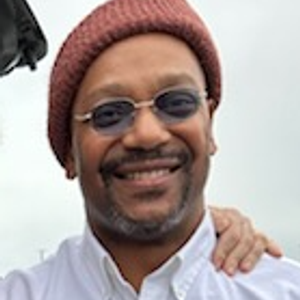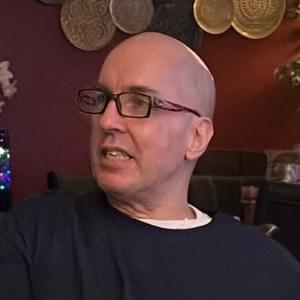Justices criticize conduct of case
By Pete Shellem and Laird Leask
September 19, 1992
The Patriot News
Former high school Principal Jay C. Smith, on death row for the 1979 murders of English teacher Susan Reinert and her two children, was freed yesterday after the state Supreme Court overturned his conviction.
The court cited “egregious” misconduct by prosecutors and state police in suppressing evidence at his 1986 trial.
“I’m bitter. I’m angry,” Smith said shortly after walking from the State Correctional Institution at Huntingdon.
“Do you have a nuclear bomb I could drop on Pennsylvania?” he said later. That’s how bitter I feel. The Pennsylvania State Police tried to kill me.”
Smith was freed at 7:01 p.m. after the state attorney general’s office said it would not ask the court to reconsider its 5-0 decision that retrying him would amount to unconstitutional double jeopardy.
The court’s order to release Smith , who has spent six years on death row, closed the tattered case against him, which spawned two books and a television miniseries.
Smith was convicted of conspiring with William S. Bradfield Jr., another English teacher in Upper Merion School District, to kill Reinert , whose nude and battered body was found in the trunk of a car abandoned in the parking lot of a Swatara Twp. motel in 1979. They also were found guilty of murdering her two children, whose bodies have never been found.
The court ruled that prosecutors acted so outrageously during the trial that a new trial, ordered in 1989 but never held, would amount to double jeopardy under the state constitution.
The ruling sent shock waves across the state from the prison in Huntingdon, to the Harrisburg area where Reinert ‘s body was found, to suburban Philadelphia, where the sordid drama unfolded 13 years ago.
The state attorney general’s office conceded defeat. Since the ruling was based on the state constitution, the U.S. Supreme Court could not be asked to intervene.
“We could petition for reargument, but we don’t see that as an option in this case,” said Robert Gentzel, spokesman for Attorney General Ernie Preate Jr. “It’s a 5-0 decision. We see no likelihood that they would even grant reargument, nonetheless change their minds.”
The case has been unraveling since Smith ‘s triple death sentence six years ago, with almost annual revelations of new or suppressed evidence. Yet the ruling came as a surprise to those who have followed the nationally-known case.
Attorney William C. Costopoulos, who fought for Smith from the beginning, said the ruling was a victory for the citizens of Pennsylvania, bolstering protection against overreaching prosecutors.
But the attorney general’s office, while blaming the past administration for the problems in the case, said the Supreme Court was overreaching, giving criminals more rights than are found in the U.S. Constitution “even when the words are virtually identical.”
The ruling hinges on the protection against being tried twice for the same crime, called double jeopardy.
Usually, when errors are made in a criminal case, the remedy offered by appellate courts is a new trial. Prior to this ruling, double jeopardy was granted only to defendants who were acquitted or when prosecutors had deliberately provoked a mistrial.
However, the court found the misconduct of the prosecution team hiding evidence and deals with witnesses to be so outrageous that to put Smith through another trial would “violate all principles of justice and fairness in the Pennsylvania Constitution’s double-jeopardy clause.”
“The record establishes the bad faith of the prosecution beyond any possibility of doubt; indeed it would be hard to imagine more egregious prosecutorial tactics,” Justice John P. Flaherty wrote in the court’s opinion.
“It is a gross understatement to conclude, as stated by the trial court and Superior Court that `neither the attorney general’s office nor the Pennsylvania State Police can take any great pride in the manner in which this case was handled during the trial and on appeal.”
Strangely, the court based its ruling on a hidden deal with a jailhouse informant and sand from Reinert’s feet that was hidden from the defense evidence that was available to it when it ruled in 1989 that Smith should have a new trial.
The court had granted the new trial then because inadmissible hearsay testimony was introduced against Smith.
The sand, which would have supported Costopoulos’ contention that Reinert was killed at the New Jersey shore by convicted co-conspirator Bradfield, was found in the last days of the trial but not revealed to the defense for almost two years.
Bradfield, who was Reinert ‘s fiance and the beneficiary of her $750,000 life insurance policy, is serving three life sentences in the slayings.
The ruling did not mention evidence that was uncovered earlier this year in the home of state police Trooper Jack Holtz, the main investigator in the case.
Boxes removed from Holtz’s Swatara Twp. home by a junk dealer in March revealed a $50,000 deal with an author writing a book about the case. They also contained a comb that was used to place Smith at the crime scene. A duplicate comb was introduced at his trial.
Ironically, Smith ‘s two main prosecutors, Holtz and former Deputy Attorney General Richard L. Guida who were glamorized in Joseph Wambaugh’s novel “Echoes in the Darkness” are now on the other side of the criminal justice system.
Guida is serving time in a federal prison for distributing cocaine. Dauphin County District Attorney Richard A. Lewis said a criminal investigation of Holtz has been turned over to a special prosecutor. Holtz also is being investigated for violating internal state police regulations.
While Costopoulos appeared elated at the decision, he said he was prepared for an outcry by those who will think a murderer is being freed.
“My only response to the outcry is that they don’t understand how important the integrity of the criminal justice system is to them,” Costopoulos said.
Even if Smith was guilty, the decision still would be valid, Costopoulos said.
Pennsylvania
Mar 01, 2024

Death-Sentenced Philadelphia Prisoner Daniel Gwynn Exonerated After Nearly 30 Years
Pennsylvania
Dec 19, 2023

Noel Montalvo Exonerated Twenty Years After Pennsylvania Sent Him to Death Row
Pennsylvania
Aug 03, 2023


